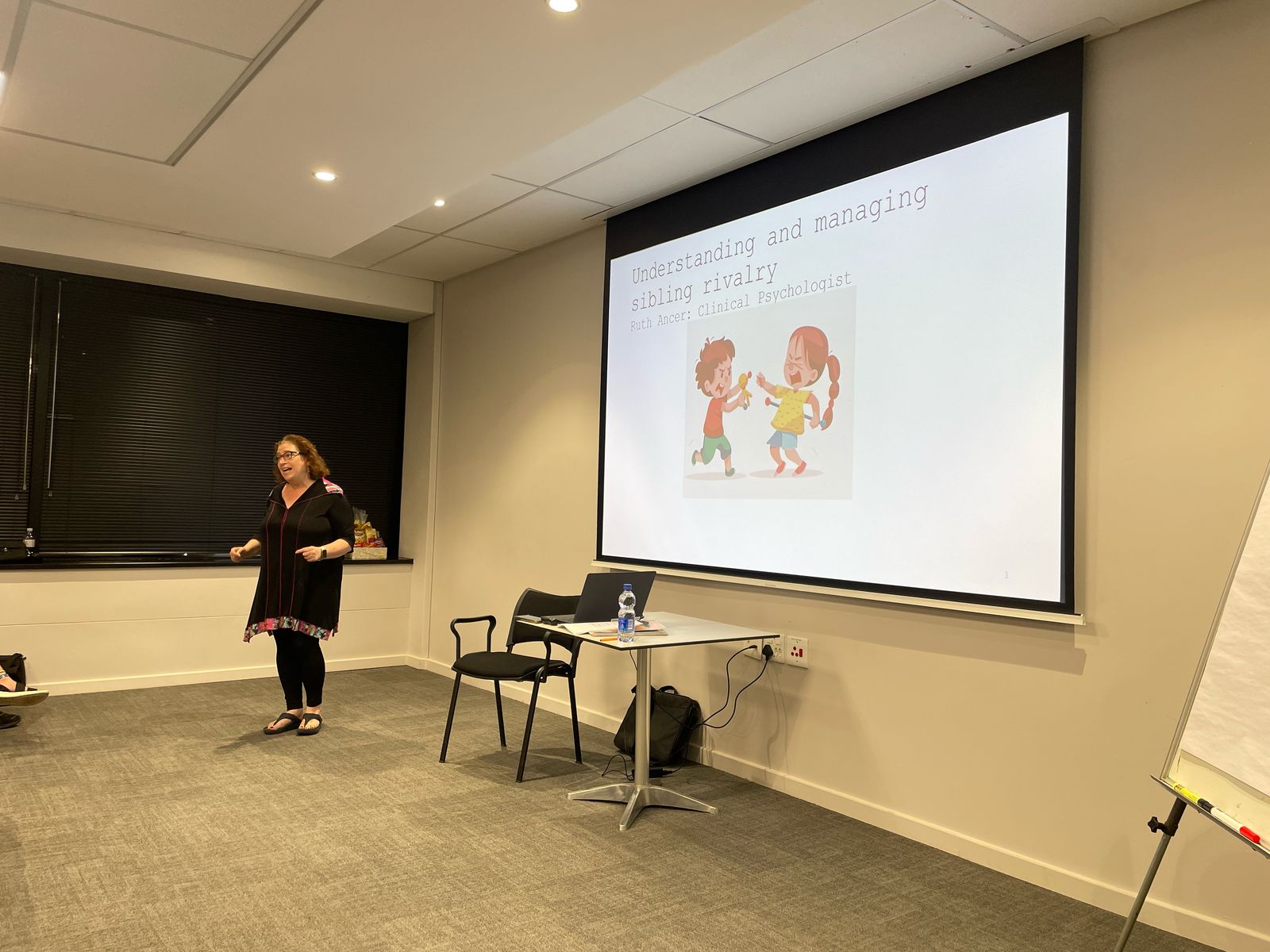
Featured Item

Art of channelling sibling rivalry into positive relationships
Though sibling rivalry may be hard for parents to witness, it’s an unavoidable and important part of childhood development, clinical psychologist Ruth Ancer told an audience at a Chevrah Kadisha talk on 26 February.
Sibling rivalry is a vehicle through which children can learn to negotiate, compromise, assert their needs, and develop social skills, Ancer said, and it changes over time.
“It’s as fluid as people,” she said. “Siblings grow and their lives diverge, the intensity of rivalry often ebbs, and there are more mature ways of engaging with each other, but the echoes of those early competitions can linger and they influence how we view ourselves.”
Though sibling rivalry can be a good thing, “when it escalates beyond healthy competition, it leads to lower self-esteem, feelings of inadequacy, and makes it hard for a child to find their own identity”, she said.
Ancer said that in many families, perceived roles are either consciously or unconsciously given to the children, such as “the responsible one”; “the troublemaker”; “the clever one”; and “the shy one”. These often have an impact not only on how the children act during childhood and adolescence, but often follow them into adulthood and can have long-lasting effects.
Though “we don’t want to give our children labels that make them feel boxed in”, we can focus on the things they do well as opposed to their general behaviour, Ancer said, pointing out that it’s important to let your “good children” know that they don’t always have to be angelic.
She said one of her patients was labelled “the perfect child” who received all the academic awards and never failed anything in her life until she failed her learner’s licence test at 17 years old. The young woman never went back to get her learner’s licence because she was scarred from the fact that she failed one time and thus wasn’t “the perfect child” anymore.
“She thinks her parents were disappointed in her. And I keep saying, ‘So many people fail their learner’s licence test. Your parents aren’t disappointed in you. They’d be disappointed in you if you were a terrible person and you made decisions that affected hundreds of people’s lives negatively. They’re not disappointed in you because three years ago, you got two things wrong in your learner’s licence test.’ But that’s how hard it’s been because she’s internalised it,” Ancer said.
Ancer said the sibling dynamic is the “blueprint for relationships”. This means that if someone has a highly competitive relationship with their siblings, it might be replicated when they are with their friends or even work colleagues.
Furthermore, Ancer said, often, a child will act out when a new sibling is brought into the fold. “Sibling rivalry is a predictable, normal, and healthy response to the birth of a new baby because it’s a perceived threat to the parent-child relationship.”
Even before her son was born, Ancer said, her daughter, who was two years old at the time, would suggest that “he get his own mommy and daddy because I don’t want to share”.
Similarly, she said, sibling rivalry teaches children how to handle conflict and negotiate as siblings often bicker over mundane things and have to learn how to navigate those challenges.
Parents should teach their children about how to handle “hot” emotions, Ancer said. “It’s okay for children sometimes to lose their tempers, but it’s important that they know how to calm down and that they don’t hurt each other in the process.”
Ancer urged parents to avoid making comparisons between their children because it can create resentment.
“It’s so easy just to say, ‘Why can’t you clean your room like [your other child]?’ But you create resentment when you compare children,” she said.
However, Ancer doesn’t advocate for everything being equal. “You can try and make things fair, but life isn’t fair,” she said. “If we try and make things fair all the time, children will never learn resilience, they’ll never learn disappointment, they’ll have unrealistic expectations. So, I wouldn’t just say, ‘Life isn’t fair.’ I’d say, ‘Things aren’t always fair. I know that makes you upset, but I can’t always make things fair.’”
Ancer said that while parents should reinforce good behaviour, they should also try to be the best possible role models for their children. “It’s so easy to tell children what to do, but they learn much more from what you do,” she said, “When you’ve lost your temper or something like that, it’s important to be able to say to your children, ‘I’m sorry, I was feeling tired and I didn’t use my calm voice, so I’m sorry for the way I reacted.’ From that they can learn that it’s also okay to say sorry.”
The sibling dynamic can be difficult, Ancer said, and no two families are the same. “Ultimately, the journey through sibling rivalry isn’t just about resolving conflicts, but about forging bonds that withstand the trials of love, enriching the family tapestry of patterns of love, respect, and enduring companionship.”










